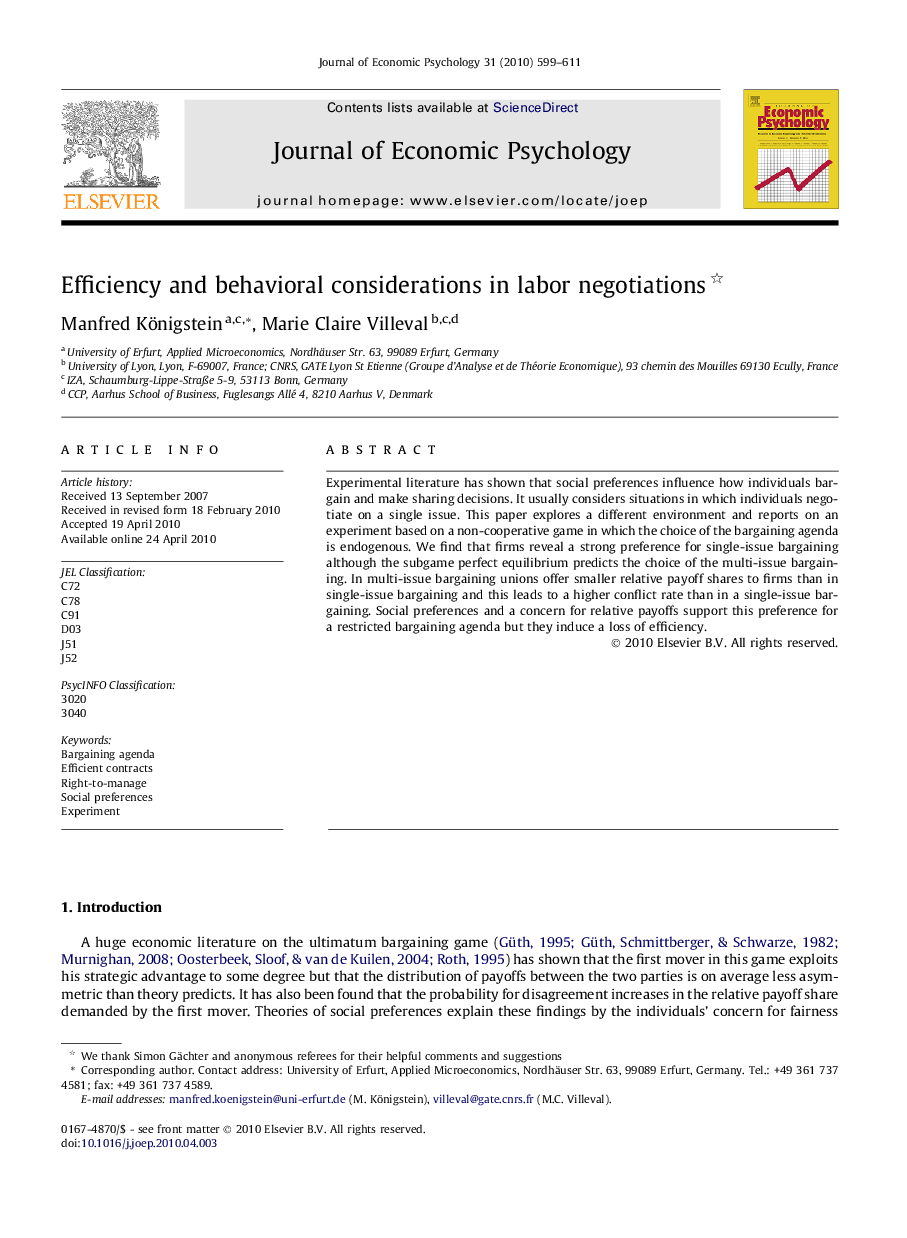| Article ID | Journal | Published Year | Pages | File Type |
|---|---|---|---|---|
| 885281 | Journal of Economic Psychology | 2010 | 13 Pages |
Experimental literature has shown that social preferences influence how individuals bargain and make sharing decisions. It usually considers situations in which individuals negotiate on a single issue. This paper explores a different environment and reports on an experiment based on a non-cooperative game in which the choice of the bargaining agenda is endogenous. We find that firms reveal a strong preference for single-issue bargaining although the subgame perfect equilibrium predicts the choice of the multi-issue bargaining. In multi-issue bargaining unions offer smaller relative payoff shares to firms than in single-issue bargaining and this leads to a higher conflict rate than in a single-issue bargaining. Social preferences and a concern for relative payoffs support this preference for a restricted bargaining agenda but they induce a loss of efficiency.
